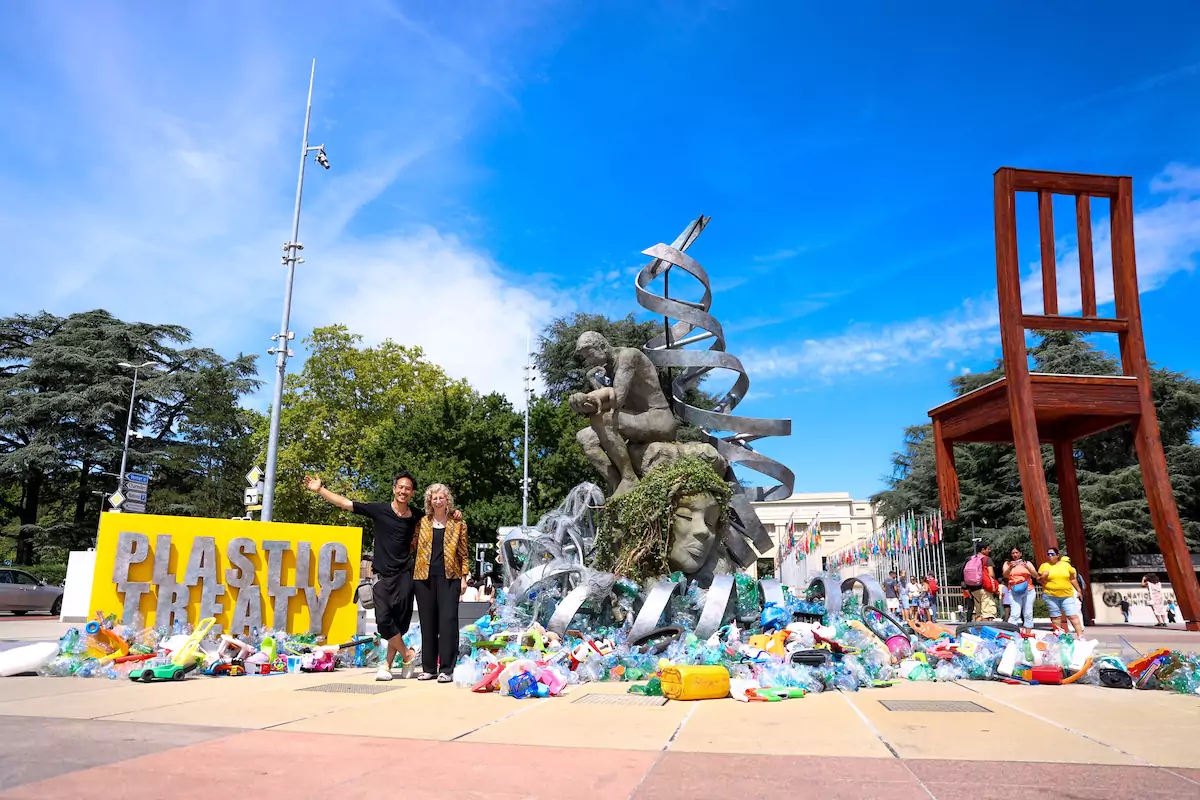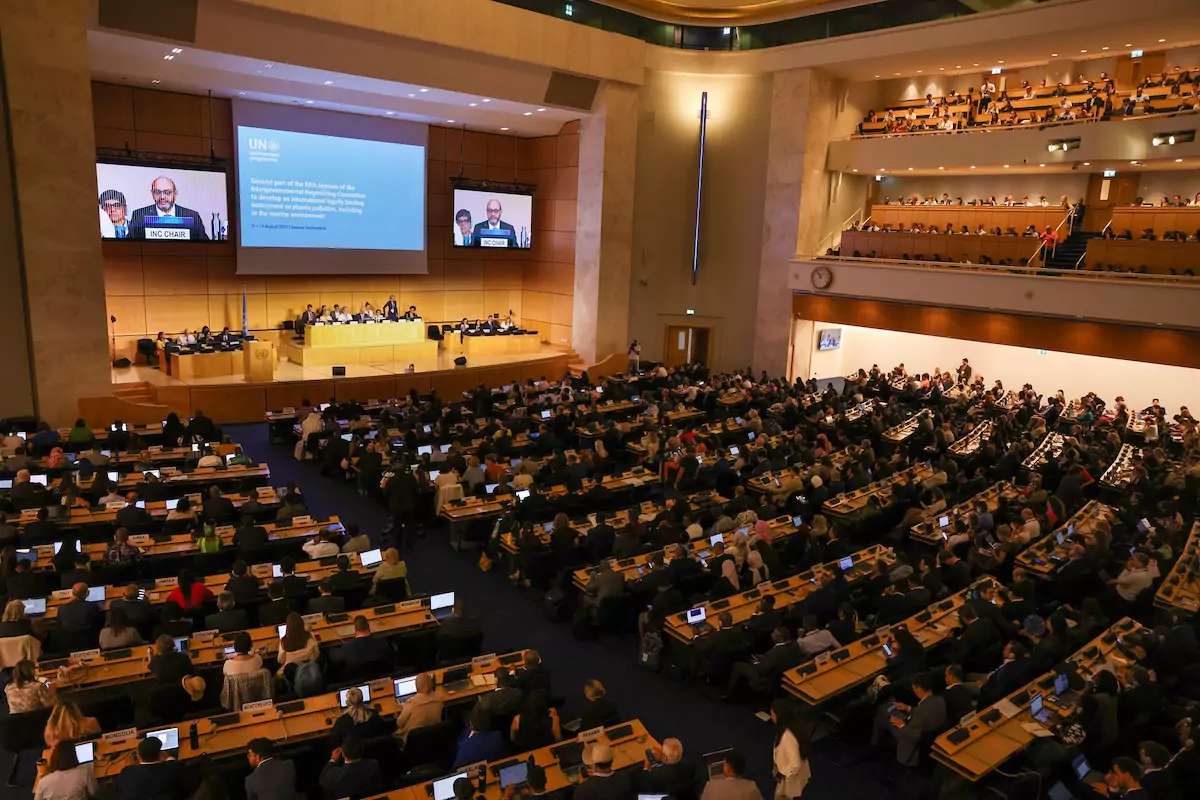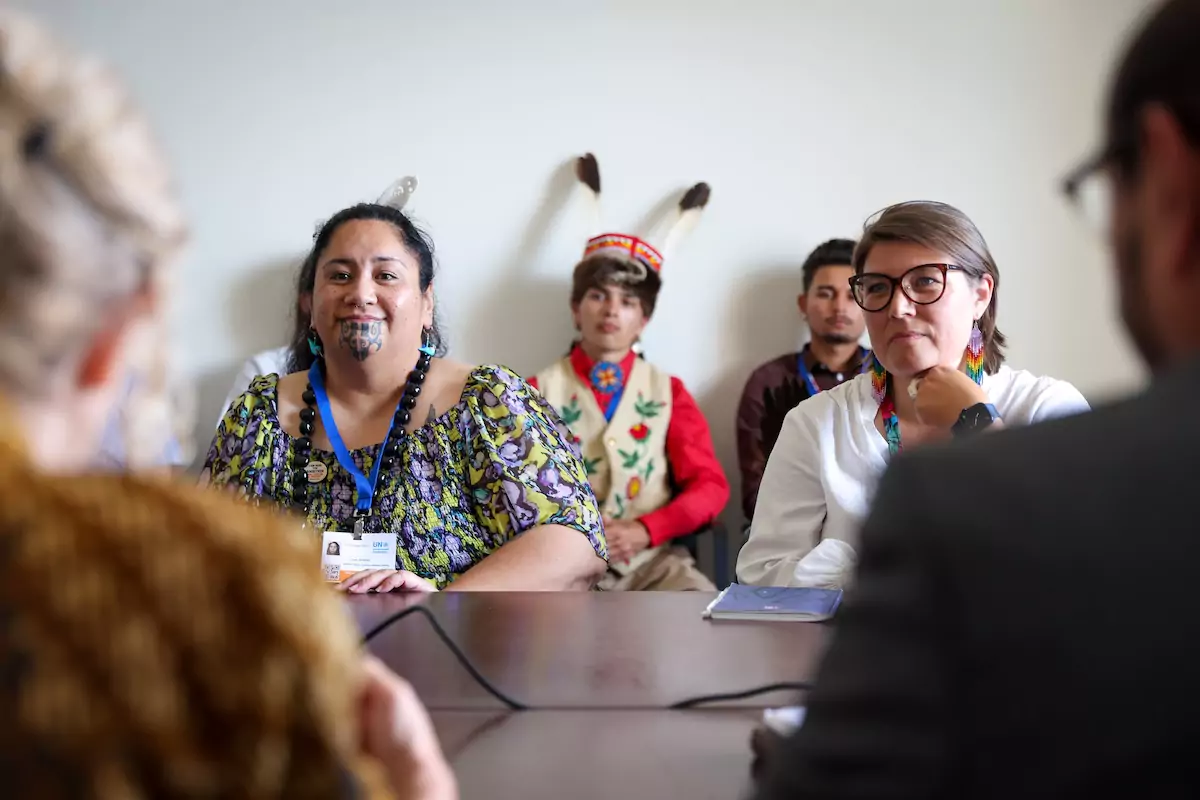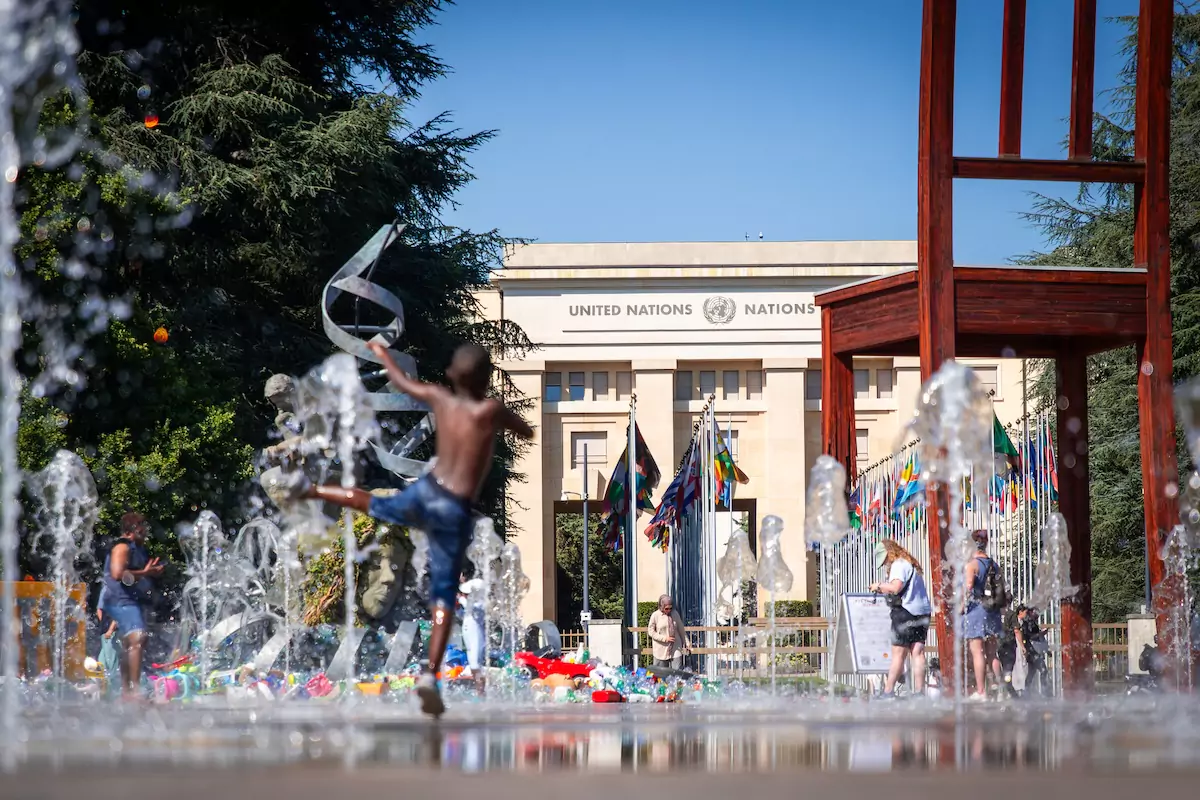The clock is ticking in Geneva as delegates from more than 180 countries struggle to agree on a landmark United Nations treaty to end plastic pollution. With the 10-day conference due to end on 14th August, negotiators are confronting deep divides over whether the agreement should include limits on plastic production — a dispute that has stalled progress for more than a year.
It is the sixth and intended final meeting of the Intergovernmental Negotiating Committee (INC-5.2), tasked with delivering a legally binding instrument covering the full life cycle of plastics, from production and design to disposal. Chair Luis Vayas Valdivieso described the gathering as a “historic opportunity” and warned that plastic pollution is damaging ecosystems, polluting oceans and rivers, threatening biodiversity, harming human health and unfairly impacting the most vulnerable. “The urgency is real,” he said.
Outside the United Nations’ Geneva headquarters, the debate has been given a striking visual presence in the form of ‘The Thinker’s Burden’, a six-metre-high sculpture by Canadian artist Benjamin Von Wong. Draped in layers of discarded plastic waste and growing daily with contributions from passers-by, the artwork stands as a reminder of the mounting crisis negotiators are trying to address.

Behind closed doors, negotiations have continued late into the night across four separate contact groups. One group has been wrestling with definitions and product design standards alongside the highly contentious “sustainable production” article, the heart of the dispute over whether to impose caps on plastic output. Another has focused on plastic waste management, remediation and leakages into the environment, finding some agreement on clean-up measures but continuing to argue over how far the treaty should go in addressing waste already in oceans and rivers.
A third has been grappling with funding and international cooperation, with developing nations calling for a dedicated facility to channel resources, while developed countries warn of potential administrative burdens. The fourth group has discussed health impacts, the treaty preamble, and national action plans, but disagreements remain over whether health provisions should stand alone or be integrated into other sections.

There has been some progress, with countries recognising the role of waste pickers in a “just transition” and agreeing that remediation measures should be aligned with other environmental agreements. But the overall pace has been slow, with much of the draft still filled with bracketed text marking unresolved provisions. In corridor conversations, frustration has been evident. One delegate described the process as “a circus”, complaining of being rushed from one room to the next as schedules shifted and sessions were postponed. Others warned that the stop-start nature of the talks was draining momentum at a critical stage.
Nations can’t agree on plastic production cap
The central dispute over production limits remains the sticking point. More than 100 countries, supported by a coalition of 300 major companies including Walmart, Coca-Cola and L’Oréal, want the treaty to address production as well as recycling and waste management.
Oil-producing nations, joined by the United States, continue to resist binding caps, arguing that pollution can be tackled through redesign, reuse and better waste systems. Without agreement on scope, many fear the treaty could be reduced to a politically convenient but environmentally ineffective compromise.

The United Nations Environment Programme estimates that between 19 and 23 million tonnes of plastic waste enter aquatic ecosystems each year, a figure that could rise by 50% by 2040 without urgent action.
For those pressing for ambitious measures, the next two days may represent the last realistic chance to secure a treaty that tackles plastic pollution at its source as well as its symptoms. Whether ministers can bridge the gap in the hours ahead will determine if Geneva delivers the historic breakthrough many have been hoping for.
Stay updated with Monaco Life: sign up for our free newsletter, catch our podcast on Spotify, and follow us across Facebook, Instagram, LinkedIn, and Tik Tok.
Main photo credit: Florian Fussstetter/ UNEP
